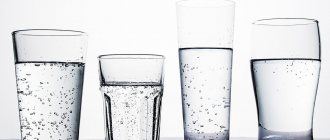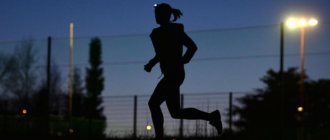Running on an empty stomach: benefit or harm
People who want to lose weight use various methods that suit their lifestyle. One popular method is the idea of running in the morning. This is a good way to give the body the right tone, accessible to everyone. Professional athletes or people building their endurance do the same training. Is it right to run in the morning on an empty stomach? Or did you need to eat a little?
The benefits of running on an empty stomach
A person losing weight will achieve a much greater effect if the diet is combined with energy expenditure during exercise. And for athletes, nutrition is important to achieve maximum results. Correctly combining diet with physical education requires considerations determined by the goal. Namely, for:
- maintaining physical fitness;
- health;
- weight loss.
But there are certain rules that are the same for all these cases. Those who intend to maintain their health for a long time or maintain their shape run. In order to find out whether there is any benefit to jogging in the morning on an empty stomach, let's turn to physiology.
When a person wakes up, his body has a minimum of glycogen reserves. This is reflected in the state, which in the first half hour may be drowsy with some lethargy. The body consumes vitality from glycogen. In its absence, it looks for a way to replenish energy in other sources. First of all, these are fat deposits. And their maximum burning can be achieved in the morning, before meals, with intense stress on the heart.
This effect is explained by the stimulation under stressful circumstances created by running on an empty stomach. Exercise forces the brain to activate resources, one of which is fat, a source of energy. From this aspect, one can see the benefits of jogging before breakfast for people struggling with excess weight. For a person with a slow metabolism, this method of training is highly recommended. Having become accustomed to such stress, the body automatically begins to burn fat reserves.
The harm of running on an empty stomach
It is also necessary to talk about the harm: there are people who have contraindications. Let's list who is at risk. 1. The ban applies to those who have minimal fat reserves. For example, some athletes are engaged in building lean muscle mass, as well as people who have dystrophy. The limitations are explained by the fact that in the absence of glycogen and fat reserves, the body will extract energy from the muscles by destroying tissue. Catabolism will appear - a phenomenon in which the hormone cortisol is produced intensively, which leads to stressful conditions. The functioning of the heart and blood vessels may deteriorate, as well as the condition of this important system itself.
2. Running on an empty stomach should not be “joked” by those who have problems with the gastrointestinal tract (GIT). This is especially true for the diagnosis of peptic ulcer disease. Exercise will make your metabolism active. The body will burn a large amount of calories, which will cause increased appetite. As a result of morning stress, gastric juice is released, which can enlarge the ulcer in the empty organ.
The rule is a calm rhythm of training on an empty stomach. Its duration cannot exceed half an hour. If not followed, a diet combined with morning jogging will lose its benefits. A state of fatigue may occur, leading to effects opposite to those desired: decreased tone, loss of strength, pressure changes. The recovery period will also be long.
What to eat before running in the morning
If you have little time before a run, and you have excluded refined carbohydrates from your diet, choose fruits. In addition to fast carbohydrates, they contain fiber, vitamins and minerals, which the body loses through sweat during running.
An excellent solution is slow carbohydrates in the form of multigrain bread with a natural composition. You can add a drop of honey: healthy fast carbohydrates, plus amino acids, vitamins and minerals. Or spread peanut or almond butter - by the way, the latter is less fatty and salty. Place a sliced apple on top and sprinkle with cinnamon.
When choosing drinks, do not limit yourself to tea and coffee (especially since they create additional stress on the heart). It is better to drink cocoa with skim or vegetable milk. It tones up no worse than coffee, tea or chocolate, but it is gentler. Add cereal cookies or grain bread to the cocoa.
Both a drink and a light breakfast dish - a fruit or fruit and vegetable smoothie. If there are no problems with acidity, this option will easily fill you up, but will not overload your stomach before running.
And start your day with water! When you wake up, drink a couple of glasses of water, drink small sips during training, and also be sure to do so after.
How many hours before training can you eat?
How should you eat to get the maximum benefit from athletics? What to eat before running early in the morning? It is recommended to have a limited breakfast. Namely, consume 200 grams of dairy products, which can be replaced with other proteins. The body will receive a supply of substances, which will prevent possible absorption of energy from the muscles. Housing and communal services will prepare to digest the main portion of food. And you can take this food only half an hour after finishing your run.
The question of whether it is possible to eat before running in the morning also includes taking into account the athlete’s build. If he is thin, he should drink one of the following liquids:
- a glass of kefir;
- weak coffee;
- tea.
Eating while running in the morning with these drinks will provide the carbohydrates you need. Catabolism will be minimized in its effect on the muscles, and the heart will not be overworked.
Why do you need to run in the morning on an empty stomach?
Do you really need to eat before running in the morning? As a result of experiments, data were obtained according to which fats are best broken down when jogging on an empty stomach. But in the evening or during the day such an effect will not work. Only in the morning does the figure benefit. Although, due to the minimal concentration of sugar in the morning, some people risk fainting. If you pay close attention to your conditions, sometimes it is very useful to resort to the method of running on an empty stomach. The usual health benefits obtained from training will be complemented by an increase in the following effects.
- Increased endurance threshold.
- Strengthening the cardiovascular system.
- Activation of blood circulation.
- Saturation of tissues with oxygen with improved functions.
- Uplifting mood.
Studies have found that 30 minutes after the start of a workout, a person produces “happiness hormones.” Athletics helps both stress and depression. But it is necessary to treat its extreme forms with caution. One aspect to pay attention to is nutrition when running.
A little about the benefits of morning running
First, let's remember the main benefits of morning jogging. They are as follows:
- Increasing the endurance threshold. To make this process effective and fast, systematically increase the load by increasing the duration and speed of your run. But here it is important not to overdo it - gradualness is what is important.
- The cardiovascular system is strengthened . This is ensured by active blood circulation while jogging. Running also promotes better oxygenation of organs and tissues, which improves their functioning. Both blood vessels and heart muscle are strengthened.
- The mood lifts. Research results confirm that after half an hour of running, the human body begins to produce happiness hormones. You are guaranteed high spirits for a long time. So running is a wonderful remedy for stress and depression.
- A beautiful figure is formed. By running you can effectively fight excess weight, which helps to tighten your figure and improve your posture. But in order to achieve maximum results in this, you need to adhere to the right diet.
Running on an empty stomach for weight loss
Those who want to lose weight should not eat a significant amount of food before their morning jog. But drinking, including an energy drink, will not only be appropriate, but also mandatory. Sweet tea will give you a dose of sugar as a source of quick energy. In this case, training can become intense, and the blood will reduce its viscosity, typical for the morning hours. Without a drink, the heart will receive an excessively large load, and the body will weaken. This is quite dangerous.
It is known that with systematic jogging, a beautiful figure is formed. People are struggling with excess weight, improving their posture. In addition to a proper diet to complement your training, sometimes, but not systematically, you can use the effective method of jogging on an empty stomach. At the same time, it is necessary to show criticism of your state of health, as well as observe the body’s reaction.
Fluid and nutrients
Water and other liquids deserve a separate discussion. Blood is more viscous in the morning, and if you start physical activity right away without replenishing your water balance, there will be a greater load on the heart. Water or other drinks in the morning before training are required.
To replenish energy, liquids with natural energy drinks or even a cup of sweet tea are suitable - fast energy for muscles and liquid for thinning the blood.
If you have to train for half an hour or more, there will be little sweetened liquid. A hearty breakfast is also not suitable: the body will be busy digesting food, and physical activity will cause heaviness and discomfort.
However, if you have 2 hours between waking up and your morning jog, then you can have a hearty breakfast in the morning and calmly go out for training at the appointed time. If you have less time, keep in mind that after a workout you usually don’t feel like eating, and as a result, your energy level will drop sharply. The most gentle solution for training in the morning is to divide your breakfast:
- before a run, carbohydrates;
- after - proteins, fats, vitamins, fiber, microelements and other nutrients.
Fasted cardio: burning fat or muscle?
Eating when running in the morning is not necessary, but in some cases you cannot train without food or drink. After all, if there is not enough adipose tissue in the body, under load it will begin to extract energy from the muscles, causing them harm. Therefore, you need to accept the fact that you need to eat a little. The amount of food and drink depends on the duration and activity of the workout. It is better to run in the morning for 15 minutes, taking some coffee or tea with sugar or cookies. More intense and longer sessions will require more energy. What is there before that? You can add milk to your coffee, and double the serving of cookies.
Running on an empty stomach improves endurance
As mentioned above, muscles get most of the energy during a run lasting from 2 minutes to 3 hours from glycogen stores. Fatigue in this time period indicates the depletion of this reserve. Therefore, it is important to consider the formation and expansion of glycogen storage during the preparation process: the more glycogen stored in the liver and muscles, the longer you can run at a given pace.
You can increase your endurance not only by increasing your glycogen reserves, but also by using it more efficiently. Research shows that depleting glycogen levels by a third leads to increased mitochondrial numbers and increased endurance.
Scientists have even created a special workout aimed specifically at increasing endurance by manipulating glycogen levels. To do this, eat a low-carb meal before your workout, then train at a low intensity for 45-60 minutes at about 70% of your VO2 max (the level at which you can still breathe through your nose with your mouth closed).
Once glycogen is sufficiently depleted, switch to 5 minute intervals with a minute of rest in between.
Read on the topic: What to eat before starting a marathon and half-marathon
Such training will force the body to optimize and save fat metabolism. The muscles will learn to cope with the amount of glycogen that is already stored in them. However, it's important to note that the effects of regular exercise on an empty stomach with previously depleted glycogen stores are still being studied, so it's important not to overdo it.
Should you run in the morning on an empty stomach or not?
To sum up the question of how to jog in the morning, on an empty stomach or not, we can say the following: the person realized that training before breakfast is beneficial. It is quite possible that this effect will be repeated many times. And some will decide to always do this way. Weighing all the pros and cons, the athlete himself has the right to come to the conclusion whether he needs to eat before the race. At the same time, you should not exhaust yourself, but you need to take into account all the nuances of your condition.
It is advisable not to turn such a fact into a system. A small amount of food consumed before training is just the norm. What you eat before running is a personal choice for the runner. Most likely, this is a drink with a small portion of food: porridge, cottage cheese, cookies. It is recommended to have a full breakfast after jogging, including carbohydrates, proteins, and vitamins. These components will help restore the body, acting as its building materials.
Disadvantages of running on an empty stomach
Short term high intensity training
Since a lot of energy and calories are consumed while running, you can quickly feel hungry and tired, because the body has already exhausted its existing reserves and has not received any additional fuel . Because of this, it is extremely difficult to maintain a high pace and not reduce the speed of training.
High risk of subsequent overeating
When the body does not receive calories before running, it demands them with redoubled force after. Those who are prone to overeating in everyday life should be especially careful not to gain at least a couple of kilograms instead of losing weight. It is also worth mentioning that some people confuse the feeling of hunger with thirst . If you didn’t drink enough while running, your dehydrated body will give signals about the need to quench your thirst, which can be inadvertently mistaken for a desire to refresh yourself.
Slightly accelerates the fat burning process
There is a myth that running on an empty stomach magically burns fat reserves and is ideal for weight loss. In fact, this is not entirely true. The body can indeed use energy from fatty acids, however, due to the inability to fully maintain high training efficiency, the body will work on energy obtained from carbohydrates rather than fats. To really speed up the fat burning process, you need active training at a high speed . Unfortunately, only experienced and professional runners can consistently push themselves to such a maximum on an empty stomach.
Possible loss of muscle mass
The risk of gradual loss of muscle mass is due to the fact that without replenishing carbohydrate and glucose stores, the body will begin to use muscle protein for energy during running . In fact, this can happen if you overdo fasted cardio and eat poorly throughout the day.
In addition, proteins begin to break down only after glycogen reserves have been depleted and the body has already received energy from free fatty acids. As a rule, already at the stage of glycogen depletion, athletes already begin to experience weakness, possibly dizziness, and severe fatigue. And to reach the stage of protein destruction, you still need to try very hard!











